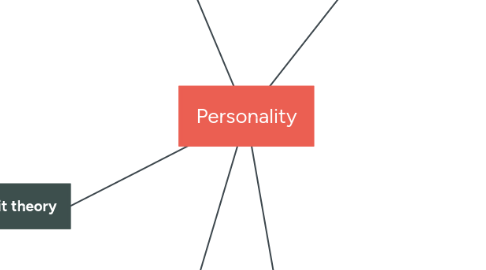Personality
저자: Nicholas Jordan


1. Social-cognitive
1.1. Reciprocal determinism—interplay of Personal factors/internal cognition Behavior Environment Personal control (Julian Rotter) External locus of control Internal locus of control *Without internal locus, learned helplessness results Explanatory style (Martin Seligman) Optimistic Unstable, specific, external Pessimistic Stable, global, internal Bandura Personality influenced by observational learning, outside influences (Bobo doll study) Self-efficacy (belief in ability to do things that lead to positive outcomes)
2. Trait theory
2.1. Greeks—4 humors (choleric, sanguine,
2.2. melancholic, phlegmatic)
2.3. Allport (student of Freud)
2.4. Eysenck—unstable/stable; introverted/extroverted
2.5. Costa & McCrae (Big 5)
2.6. OCEAN (openness, conscientiousness,
2.7. extraversion, agreeableness,
2.8. neuroticism)
2.9. Assessment
2.10. MMPI (used factor analysis, empirically
2.11. derived)
2.12. Cattell’s 16PF
2.13. Person-situation controversy
2.14. Walter Mischel—emphasizes
2.15. power of situational factors
2.16. Expressive style—thin slices
2.17. Barnum effect—astrology, etc.
3. The self
3.1. Hazel Markus— ―possible selves‖
3.2. Spotlight effect
3.3. Self-referencing effect
3.4. Self-esteem
3.4.1. Defensive vs. secure

